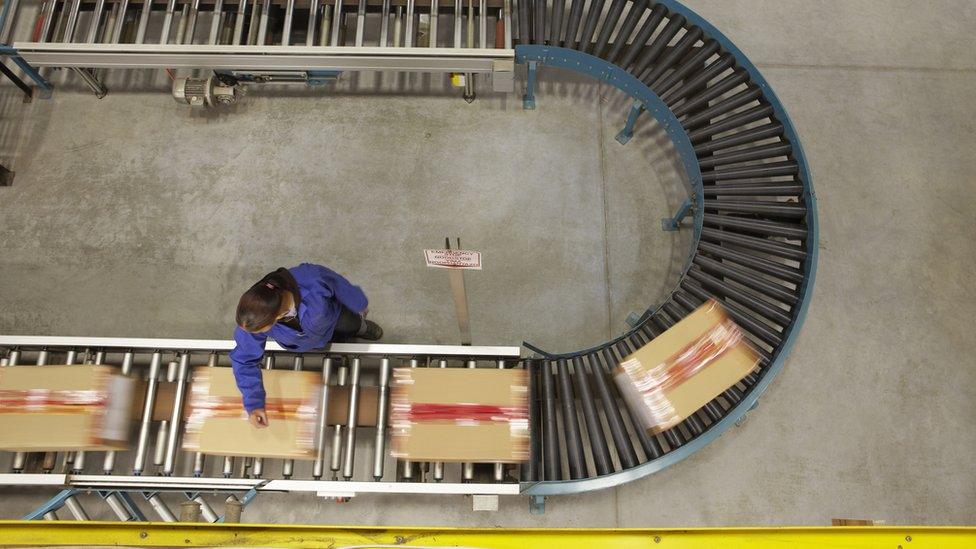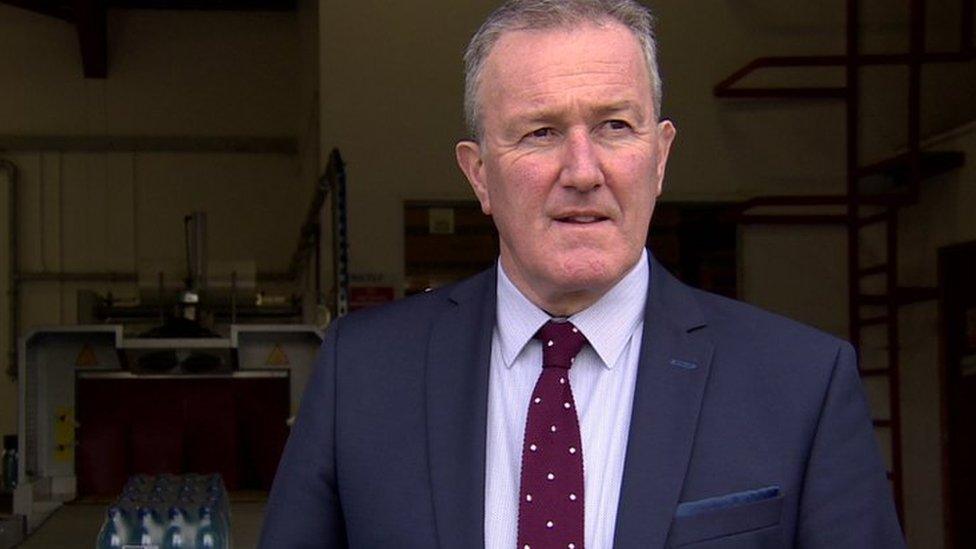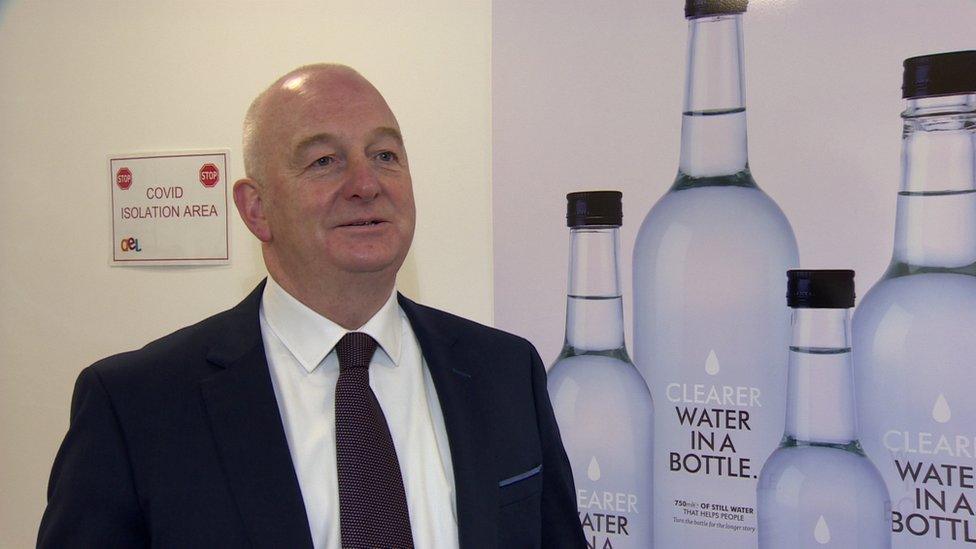Stormont: New contract procurement rules focus on local businesses
- Published

Changes to how Stormont awards public procurement contracts have been hailed as a huge opportunity by business groups and the voluntary sector.
Procurement is the process of businesses bidding to win government contracts.
The voluntary sector could now find it easier to tender for contracts, while the Department of Finance said the move will protect supply chains.
Stormont departments must now place a focus on local manufacturing.
Every year the Northern Ireland Executive spends £3bn buying goods, services and construction from the private and third sectors.
Previously, the Department of Finance announced that the living wage would be included as a condition of contract for tenders.
There is now a new focus on local supply chains which could benefit the economy, according to Mary Meehan, deputy chief executive at Manufacturing NI.

The deputy chief executive at Manufacturing NI says the new resilience policy will help support local supply chains
"The pandemic has exposed the vulnerabilities and the risk of disruption within supply chains right across industry and in the public sector," she told BBC News NI.
"This new resilience policy is really a framework to help public sector bodies to support those local supply chains and help reduce the risk of disruption."
Finance Minister Conor Murphy has announced a further policy change, which he said should make it easier for voluntary, community and social enterprise organisations to secure public contracts.
"We want people to engage more with local organisations," he said.

Finance Minister Conor Murphy said the new rules give bigger opportunities for social enterprises
"It reduces the carbon footprint in terms of goods coming in and out and it means more employment is created locally.
"One of the key things we are saying is anyone engaging in government contracts will have to have a percentage of social element in that contract.
"I think that gives bigger opportunities for social enterprises to partner up with private sector businesses to do more good for society."
Tenders are scored on the basis of cost and quality, but from June, they must include a minimum of 10% of total award criteria to social value.
'We are busier'
Social enterprise Access Employment Limited works with people with mixed abilities and creates employment opportunities within local communities.
Chief executive David Hunter told BBC Radio Ulster's Good Morning Ulster that the changes will remove barriers when it comes to tendering for projects.
"At the moment it is quite difficult to access government procurement contracts but what today's announcement will do is give us access to private sector companies in terms of working in collaboration with them to get involved in supply contracts," he said.

David Hunter said the change is good news for Access Employment Limited because it is busier
"We might not be the main supplier but we can be part of the supply chain and that is good news for us as it means we are busier.
"Many of the workforce here have some form of disability and previously they would have been excluded from the labour market.
"What we have been able to do is provide jobs for those people and give meaningful employment."
Organisations said they recognised it is not possible for the third sector to bid for large-scale projects but it is hoped there will be more awareness of what contributions they can make as part of bids by the private sector.
Social Enterprise Northern Ireland said this awareness was important to help support the local economy and to make better use of public money.
Related topics
- Published5 July 2021

- Published8 November 2021

- Published18 January 2022
